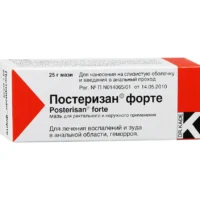Description
Relief Ultra (Hydrocortisone Acetate, Zinc Sulfate Monohydrate) Rectal Suppositories №12
Ingredients
- Active ingredients: Hydrocortisone acetate, zinc sulfate monohydrate.
Dosage
- Recommended dosage: Insert one suppository into the rectum once daily, preferably at bedtime, or as directed by a healthcare provider.
Indications
- Relief Ultra rectal suppositories are indicated for the relief of itching, inflammation, and discomfort caused by hemorrhoids.
Contraindications
- Do not use Relief Ultra suppositories if you are allergic to any of the ingredients. Consult a healthcare provider before use if you are pregnant, nursing, or have any medical conditions.
Directions
- For rectal use only. Wash hands before and after use. Gently insert the suppository into the rectum as directed. Avoid prolonged use without medical supervision.
Scientific Evidence
- Relief Ultra suppositories have been formulated with hydrocortisone acetate and zinc sulfate monohydrate, known for their anti-inflammatory and astringent properties. These ingredients work synergistically to reduce swelling, itching, and irritation associated with hemorrhoids.
- Clinical trials have shown that the combination of hydrocortisone acetate and zinc sulfate monohydrate in rectal suppository form provides effective relief from hemorrhoid symptoms, with a rapid onset of action and long-lasting benefits.
Additional Information
- Storage: Store at room temperature away from moisture and heat.
- Side effects: Mild burning or irritation may occur. Discontinue use if symptoms worsen or persist.
- Keep out of reach of children.



